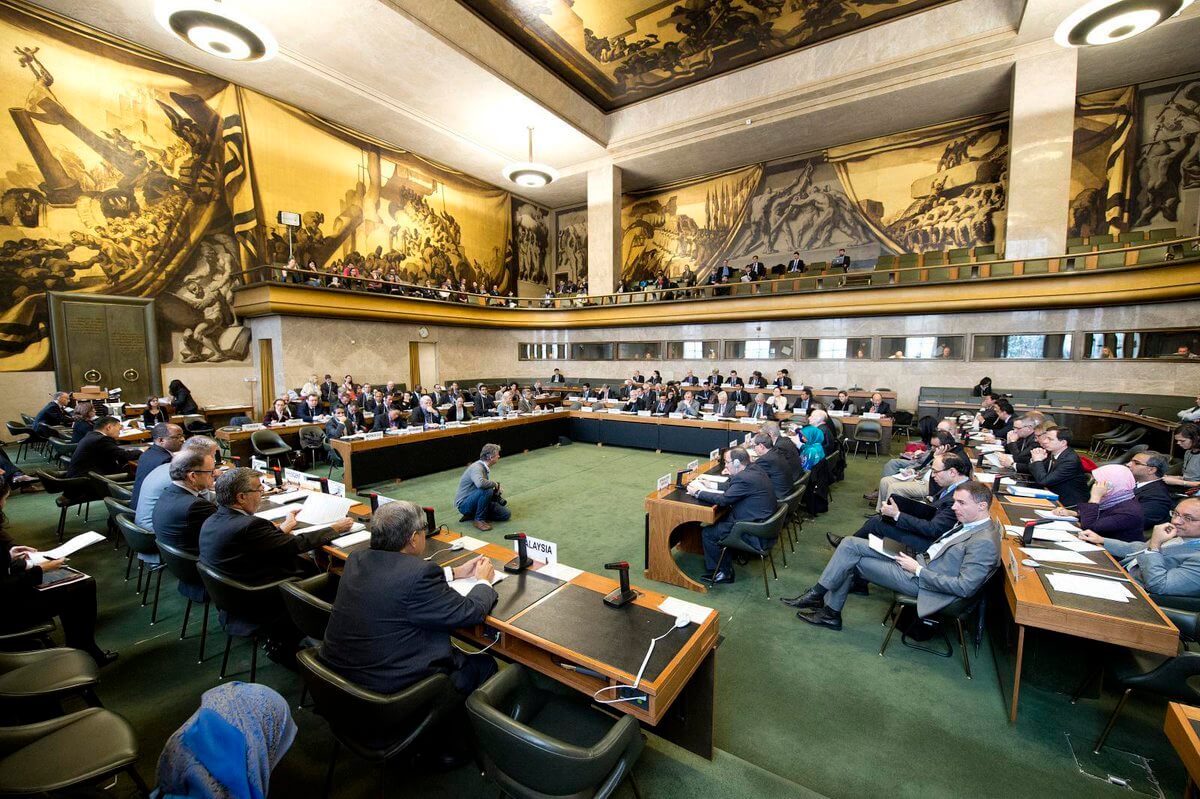Iran and Turkey on Tuesday blocked their respective rivals from participating in the United Nations’ Conference on Disarmament (CD) in Geneva, sparking concerns about the forum’s future, which has been embroiled in a years-long deadlock over the issue.
Iran objected to Saudi Arabia and the UAE joining the talks as observers, denouncing their military record. Tehran further singled out Saudi Arabia and said that the country had used the convention as a platform for a “distraction and disinformation campaign” while simultaneously being the “largest military offender in the region”, referring to its involvement in the Yemen war over the last six years. The UAE is part of the Saudi-led coalition fighting against the Iran-backed Houthi rebels in Yemen.
With this in mind, Iranian envoy Esmaeil Baqaei Hamaneh stressed that the countries’ involvement at the conference would be “destructive” and run contrary to the assembly’s goals and mission. “As experience shows, that country (Saudi Arabia) only abuses the meetings and discussions at the Conference on Disarmament to distract public opinion and pin the blame on others for its own mistakes and crimes in Yemen,” he added.
On the other hand, Turkey blocked Cyprus’ participation. The countries have long been at odds over a range of issues, including hydrocarbon resources in the eastern Mediterranean and the breakaway Turkish Republic of Northern Cyprus (TRNC). While Saudi Arabia has not yet publicly responded to Iran’s actions, Cyprus, on the other hand, expressed “deep regret” at Turkey’s decision.
Other members like India, the United Kingdom (UK), and the European Union (EU) also criticised the blockages, with British envoy to the CD, Aidan Little saying: “If we are going to start picking and choosing then I think this will be the beginning of the end of multilateralism.” Meanwhile, former French diplomat Marc Finaud told Reuters that the incident was a sign that the forum was at a crossroads, and that it needed to do some “soul searching” in order to stay relevant.
The CD is the only multilateral forum for disarmament. And since it operates on the basis of a consensus, significant progress has been slow. The last major agreement within the conference was the 1996 Comprehensive Nuclear Test Ban Treaty (CTBT), which prohibited “any nuclear weapon test explosion or any other nuclear explosion.” Since then, however, the forum has failed to agree on a program of work to revitalize the disarmament machinery and maintain its relevance as a deliberative institution for global arms control. Member states have argued that the stalemate lies in the unwillingness of nations to implement their own disarmament obligations and be subject to international law and that it is a reflection of the lack of political will by some that believe in deterrence, rather than collective security. Tuesday’s incident highlighted the persistence of these tensions within the body.
Nevertheless, the conference’s current president Belgium said on its Twitter feed on Monday that it hoped to set out a work program “after too many years of deadlock”.
As 🇧🇪Belgium's presidency of the #ConferenceOnDisarmament opens today, we are committed to facilitate the adoption of a #ProgramOfWork, after too many years of deadlock.
— Belgium UN Geneva (@BelgiumUNGeneva) January 19, 2021
In the current security context, effective #Multilateralism is needed more than ever.

